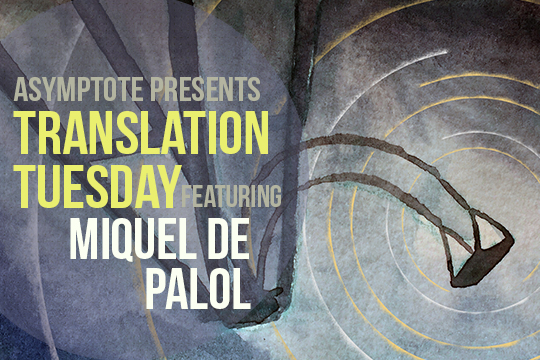“When I read Miquel de Palol,” says Mireira Vidal-Conte, “I see reflections of such authors as Claudio Magris, Robert Walser, Cortázar, Ray Bradbury, Clarice Lispector, Stendhal, Szymborska, Casares, Karel Čapek, Pessoa, Proust, Flaubert, or Novalis; but also of painters like Brueghel the Elder (the first of many predecessors of the surrealism of the detail) or the cinema of David Lynch, Fellini, or Wong Kar-wai. This is true irrespective of the genre, for the poet under discussion works not in a specific genre (save for that of language), but in the broader category of art. As a literary artist, he employs genre in the manner of a simple tool, employing the one that works or those occasions when it works. He is a poet when poetry is what is called for.” For this Translation Tuesday, we present an excerpt from The Garden of Seven Twilights, in which the great Miquel de Palol touches the real in all its vertiginous vastness in childhood moments spent face to face with the cosmos. This piece was first published last Thursday along with new work from thirty-one countries in our Fall 2017 issue.
—Lee Yew Leong, Editor-in-Chief
The Story of the Swing and the Stars
My American childhood, super-protected, closed in on itself, took place between Long Island and New England: Providence, Boston, Salem . . . Now they seem to me like places from a dream. My godfather Kaspar had a house on the outskirts of Boston, and I stayed there for long stretches in the summer, until my mother died.
There was a swing between two apple trees in the garden behind the house, but from a very young age, I preferred to kill time staring at the cockroaches and butterflies.


